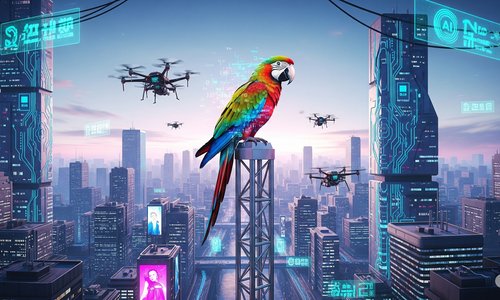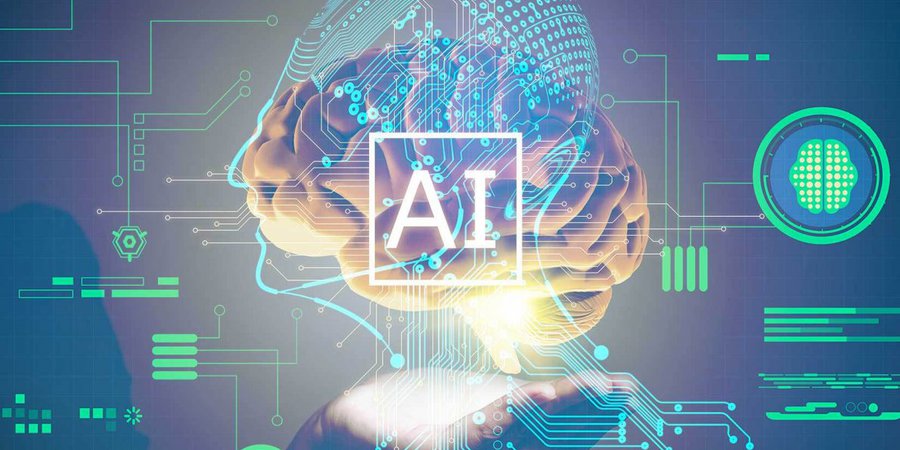
A Promessa e o Perigo da Nova Revolução Digital
A nova corrida tecnológica global levanta uma pergunta urgente: estamos prontos para confiar na inteligência que criamos?

A inteligência Artificial tem sido debatida no mundo todo, como uma das tecnologias emergentes mais poderosas e apontada como o próximo grande passo da transformação da vida humana como conhecemos.
Alguns exageram na criatividade, outros menosprezam a realidade. Porém, os algoritmos matemáticos que hoje denominamos como “inteligência artificial” já fazem parte de nosso cotidiano e já influenciam o comportamento da sociedade em geral.
Separando os públicos para melhor compreendê-los, podemos dizer que os grupos que exageram na criatividade, são os que acreditam que a IA que produzimos atualmente e produziremos em curto espaço de tempo substituirá os humanos e dominará o mundo.
Para esclarecer essa teoria, traremos alguns exemplos de grandes conquistas cientificas da humanidade:
Projeto sequenciamento do genoma humano - O Projeto Genoma Humano iniciou-se em 1990 e tinha como objetivo determinar a sequência de todas as bases do DNA genômico e identificar e mapear os genes distribuídos em nossos 23 pares de cromossomos. O projeto teve suas atividades finalizadas após 13 anos, em 2003. Entre os resultados obtidos no processo, pode-se destacar a descoberta dos 3,2 bilhões de nucleotídeos que compõem o genoma humano e a identificação da função de cerca de 50% deles. Também é importante destacar que foi possível concluir que a sequência do genoma humano é 99,9% igual em todos os indivíduos.
Projeto Conectômica (que utiliza técnicas detalhadas de imagem para mapear as vias físicas do cérebro) - cientistas finalmente do google conseguiram produzir o maior mapa de conectividade cerebral até o momento. O modelo mostra 25 mil neurônios, e 20 milhões de sinapses rolando entre eles. Trata-se do cérebro de uma “mosca” que possui em média 1000 mil neurônios. Para se ter uma ordem de grandeza, o cérebro humano possui 86 bilhões de sinapses. O trabalho de reconstrução para posterior análise da capacidade de sinapses do cérebro da mosca, levou 2 anos para ser desenvolvido, logo para atingirmos o mesmo nível em relação ao cérebro humano vamos ter que nos dedicar um pouco mais.
Porque seria importante conhecer a “conectividade” dos neurônios humanos? Uma vez que dominássemos as razões pelas quais nossos neurônios fazem bilhões de combinações elétricas por milésimo de segundos, talvez desvendássemos a nossa real inteligência “Humana” e assim pudéssemos criar algo verdadeiramente “inteligente”. Hoje os algoritmos que utilizamos como “Inteligência artificial”, são desenvolvidos com base na teoria matemática de “Redes Neurais”, uma representação simples, deste emaranhado de conexões, denominadas sinapses que ocorrem no nosso cérebro. Nossos algoritmos fazem tais correlações de forma binária, baseados em cálculos probabilísticos de semelhança.
Os computadores quânticos, quando se tornarem economicamente viáveis e menos poluentes, poderão propiciar maior velocidade e uma capacidade não “binária” de correlações, já que dos fundamentos da Física Quântica é não ser mais determinísticas, isto é, não são capazes de predizer exatamente onde algum objeto encontra-se, ou em qual velocidade. Na Física Quântica, as medidas obtidas são expressas em probabilidades. E isto é o que imaginamos que nosso cérebro faça quando interpretamos algo como conhecido ou desconhecido, decidimos ir em frente ou desistir. Concluímos que nossa “inteligência” é “determinística” ou “probabilística”.
Como podem notar entre os dois projetos científicos, para encontrarmos as funções determinísticas de 3,2 bilhões de nucleotídeos do genoma humano levamos 13 anos. Para descobrirmos os dilemas da conectividade do cérebro humano com seus 86 bilhões de sinapses por segundo, sendo eles “não determinísticos”, estimo que levaremos uns 26 anos, com a ajuda dos computadores quânticos.
Sendo assim, a inteligência artificial capaz de dominar o seu criador humano está um pouco longe. Afinal poderemos concluir que nem precisamos de nada artificial, que já temos o que precisamos naturalmente e o desenvolvimento da inteligência artificial se torne coisa do passado.
Mas vamos ao que temos hoje de fato. Temos uma sociedade interconectada que gera bilhões de dados por minuto, e através dos seus algoritmos binários influencia as decisões de milhões de habitantes ao redor do mundo.
Conforme comentou o autor do best-seller Sapiens, Yuval Noah Harari em entrevista a revista Época Negócios em 2018:
“Se você acha essas perspectivas alarmantes”, diz ele, “a contribuição mais importante que você pode dar é encontrar maneiras de evitar que muitos dados sejam concentrados em poucas mãos”. Sem qualquer ação de
prevenção, diz o autor, os humanos correm o risco de se tornar algo similar a “animais domesticados”.
Isso sim é alarmante! Pesquisas revelam que as “Big Techs” (Amazon, Apple, Facebook, e Google), já detém 90% dos dados que circulam ao redor do mundo. Segundo site “Site Human Rights Watch”(Observatório dos Direitos Humanos):
“É quase impossível evitar o uso de produtos de uma dessas empresas
online. O Facebook e o Google, em particular, tornaram-se portais para acessar e disseminar informações. A cada mês, quase 3 bilhões de pessoas usam o Facebook ou WhatsApp ou Instagram (que adquiriu nos últimos anos). Mais de 90% dos usuários do Facebook estão fora dos Estados
Unidos. Mais de 90% do mundo usa a Pesquisa Google, e o software
Android do Google suporta pelo menos três de cada quatro smartphones do mundo.”
Quando sabemos que os atuais algoritmos dependem de dados para seu aprendizado e sabemos que 90% dos dados gerados no mundo estão nas mãos de 5 empresas, todas oriundas de um único país com seus valores morais e éticos bem específicos. Aí sim vemos um perigo real de exclusão das demais culturas e diversidade humanas.
Quando falamos em “governança” na “inteligência artificial”, estamos abordando este aspecto do treinamento dos algoritmos com bases de dados que possam representar proporcionalmente a diversidade cultural, racial e de conceitos éticos e morais que existem em nosso planeta.
Diante dos métodos hora disponíveis para desenvolvimento e treinamento dos algoritmos, todos dependem da qualidade de dados para seu aprendizado.
Já ouvimos absurdos de alegações de robôs “racistas”, mas se o robô discriminou uma pessoa por conta da sua raça ou etnia é porque o desenvolvedor do algoritmo o treinou em uma base de dados que continha definições estereotipadas de determinada raça ou etnia, ou simplesmente não havia representatividade significativa dessa variedade no volume total dos dados que o algoritmo foi treinado. Logo, por ser binário e trabalhar com probabilidades, a probabilidade dessa etnia ser algo importante se tornaria quase nula, e o robô o intitularia como algo “descartável”, aí vem a crença de “discriminação” sentida pelo usuário final. Por ter sido considerado “descartável”. Mas a máquina não fez isso sozinha. Existe a responsabilidade humana de coletar, tratar os dados, de acordo com “os conceitos éticos”, que são “quânticos”!
Enfim, o nosso dilema atual é desenvolver a capacidade crítica de análise de dados no maior volume de pessoas ao redor do mundo. Porque são os humanos que geram e tomam decisões baseadas em dados.
Ainda parafraseando as análises do historiador e futurólogo Yurval Harari, em uma das suas entrevistas sobre a pandemia de COVID-19, ele respondeu o seguinte:
“temos o conhecimento científico para solucionar esta crise, mas não a
sabedoria política para fazer isso. Todas as grandes conquistas da
humanidade, da construção das pirâmides ao voo à Lua, não foram o
resultado de um gênio individual, mas da cooperação entre incontáveis estranhos. Demonstrar sabedoria política significaria atuar de maneira que se maximize este poder de cooperação em benefício de todos. Sabemos que a humanidade é capaz deste tipo de colaboração. Basta olhar para a
pesquisa científica.”
Como podem ver, a governança em inteligência artificial trata-se de interesse coletivo e não individual, ou de um grupo específico. A não existência de parâmetros de interesse comum para garantir a representatividade de suas múltiplas faces e a preservação do livre arbítrio, podem transformar nossa sociedade em uma sociedade de marionetes. Na busca pela “inteligência”, estamos nos distanciando da “sabedoria”.
Sendo assim, creio que atualmente mais importante que conhecer fórmulas matemáticas e história da civilização, seja conhecer a si mesmo. E esta é uma aventura individual e solitária.
Fontes:
Site Época negócios - O verdadeiro perigo da tecnologia, segundo o autor de 'Sapiens',Yuval Noah Harari - https://epocanegocios.globo.com/Mundo/noticia/2018/09/o-verdadeiro perigo-da-tecnologia-segundo-o-autor-de-sapiens.html
Site Human Rights Watch - Big Tech's Heavy Hand Around the Globe -
https://www.hrw.org/news/2020/09/08/big-techs-heavy-hand-around-globe
Moral Machine – MIT - https://mittechreview.com.br/o-carro-autonomo-deveria-atropelar-o bebe-ou-a-velhinha-depende-de-onde-voce-se-encontra/
A autora:
“Janete Ribeiro é CEO da Analytics Data, consultoria especializada em ciência de dados e inteligência artificial, possui certificação em governança de dados pelo MIT. É embaixadora do WiDS (Women In Data Science), vinculado à Universidade de Stanford, professora de pós graduação em Big Data & Analytics no SENAC, autora do livros “A atuação do profissional de inteligência competitiva” e “Pesquisa de Marketing”
Janete Ribeiro é CEO da Analytics Data, consultoria especializada em ciência de dados e inteligência artificial, possui certificação em governança de dados pelo MIT.
É embaixadora do WiDS (Women In Data Science), vinculado à Universidade de Stanford, professora de pós-graduação em Big Data & Analytics no SENAC,
autora de livros sobre Pesquisa de Marketing e Inteligência de Mercado.

A nova corrida tecnológica global levanta uma pergunta urgente: estamos prontos para confiar na inteligência que criamos?

Por que dominar a IA será a nova alfabetização do século XXI

Conselhos de Administração devem evoluir da supervisão reativa para a antecipação estratégica, frente à crescente complexidade e volatilidade dos ambientes de negócios.

De 14 a 25 de julho, reserve suas manhãs das 08h00 às 09h30 para participar da tradicional Maratona I2AI! Uma jornada intensa com debates e palestras sobre temas essenciais: Ética,